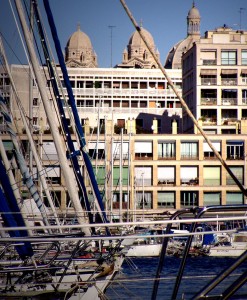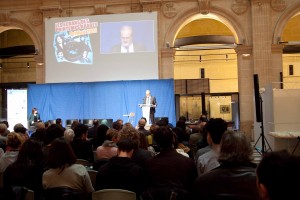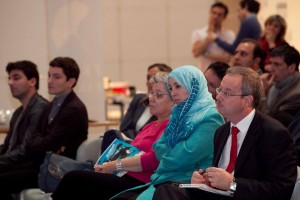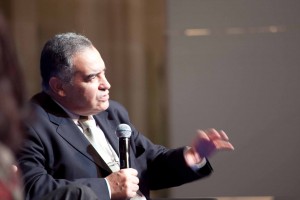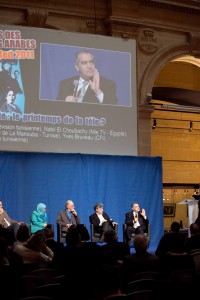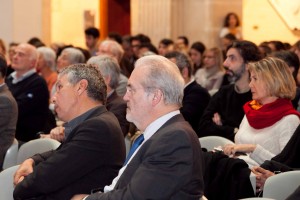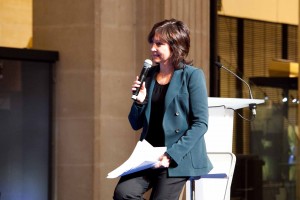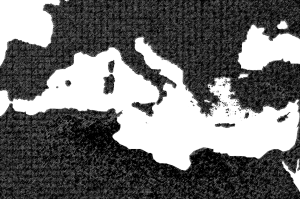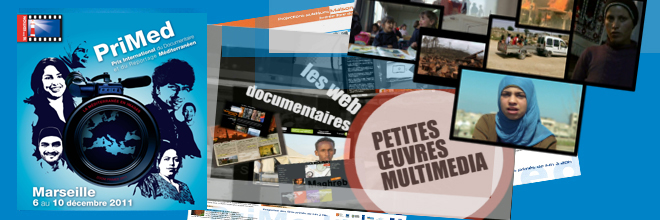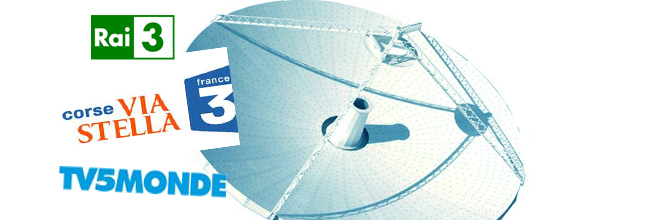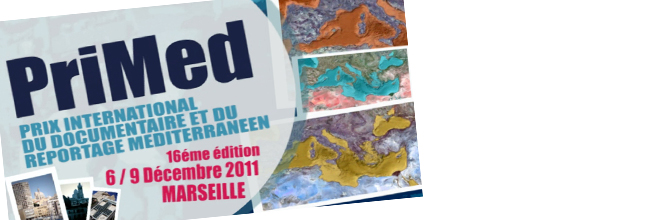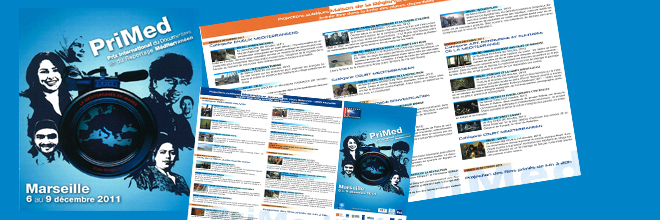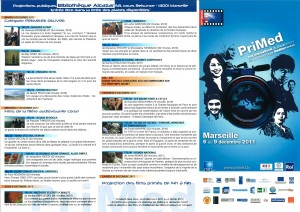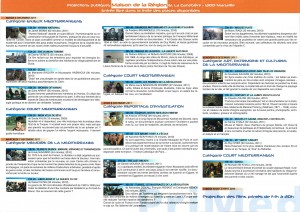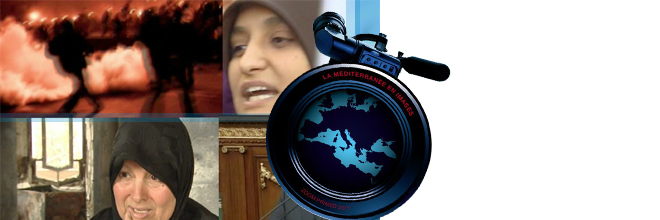 PriMed news
PriMed news
ARAB SPRING BROADCASTING CONFERENCE
Photos de Anaïs Ginoux
This conference is organised by Jean Paul GEROUARD (France 3) and presented by Sylvie DEPIERRE.
December 9th 2011 – Hall de la Chambre d’Industrie et Commerce – Palais de la Bourse 9 la Canebière 13001 Marseille
The Mediterranean Audiovisual Landscape face of the news events of Arab Spring in 2011. Excerpts from documentaries, analysis and debateswith the presence of witnesses, experts and professionals of the Mediterranean audiovisual sector.
–
| Panel 1: “The Arab Spring” broadcasted on European and Maghreb media |
The treatment of Arab revolts covers very different geographical areas. How reporters and filmmakers of the North Shore of the Mediterranean did they lived and covered these revolutions? The North is still a prisoner of his prejudices about the South? The western media were real actors in these uprisings?
Speakers : Magali Forestier (France 3), Alberto Romagnioli (RAI- Italia), Soumaya Derhourhi (2M – Morocco), Gilles Jacquier (France 2)…
| Panel 2 International networks: the birth of an Arab opinion? |
The Arab Revolt had an immediate impact on the television in the countries concerned. How in North Africa and the Middle East, Algerian or Moroccan journalists and their colleagues have covered these events with their own limitations of reference … This round table will gather their stories, share their hopes, and will report on the upheavals of the Arab media .

Speakers : Joakim Afoutni (Agence Afrik TV), Lotfi Hajji (Al Jazira – Qatar), Ali Oudjana (France 24), Slimane Zeghidour (TV5 – France)…
| Debate 3: “The Arab Spring” broadcasted on countries the country of revolution |
The emersion of international channels like Al Jazeira, Al Arabiya had already changed the media landscape of the Middle East and North Africa. During revoutions, the Egyptians and Tunisians were massively connected to the Internet, but also to the most popular international news channel (Arabic, French, and English). Which is the role of these trans-national medias? Have they given different readings of events? Have they contributed to the emersion of a new democratic requirement?
Speakers: Mokhtar Rassaa (Pdg Télévision tunisienne), Nabil Choubachy (Nile TV – Egypt), Kmar Bendana (Université de La Manouba – Tunisie), Yves Bruneau (CFI),…
